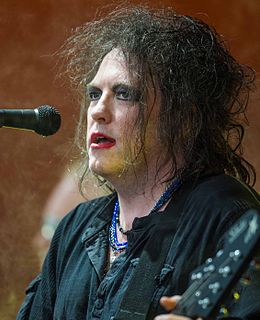A Quote by Robert Smith
Every animal would rather die themselves than lose their offspring. But it's just genes, isn't it? All of our existence is spent worrying about the next generation, but we don't actually seem to get anywhere.
Related Quotes
Yes, genes are important for understanding our behavior. Incredibly important - after all, they code for every protein pertinent to brain function, endocrinology, etc., etc. But the regulation of genes is often more interesting than the genes themselves, and it's the environment that regulates genes.
Recently, results of the Human Genome Project have shattered one of Science's fundamental core beliefs, the concept of genetic determinism. We have been led to believe that our genes determine the character of our lives, yet new research surprisingly reveals that it is the character of our lives that controls our genes. Rather than being victims of our heredity, we are actually masters of our genome.
Of course it is a very simple matter to identify genes which might modify intelligence or memory and start thinking about whether you want to enhance a human, and the next generation is going to have to deal with that issue. Should we be trying to enhance humans rather than trying to educate them and so on?
Of course our genes will make some capacities very much easier to learn than others, and of course our genes themselves are not learned. But the point remains that genes themselves are not cognitive capacities, and that anything worth calling a cognitive capacity will depend to some degree on learning and so not be innate.
Human beings are ultimately nothing but carriers-passageways- for genes. They ride us into the ground like racehorses from generation to generation. Genes don't think about what constitutes good or evil. They don't care whether we are happy or unhappy. We're just means to an end for them. The only thing they think about is what is most efficient for them.
When we talk about something like student loans, what we should be talking about is the fact that every American wants their kids to do better than we have done. If we can get that, the other thing we'd really like is for our kids to be able to come home and raise their kids in the community where we raised them. What unites all of us, no matter where you live in the country, is we want our family to be safe, we want the next generation in our family to be more successful than us, and we would like our family to be close together.




































